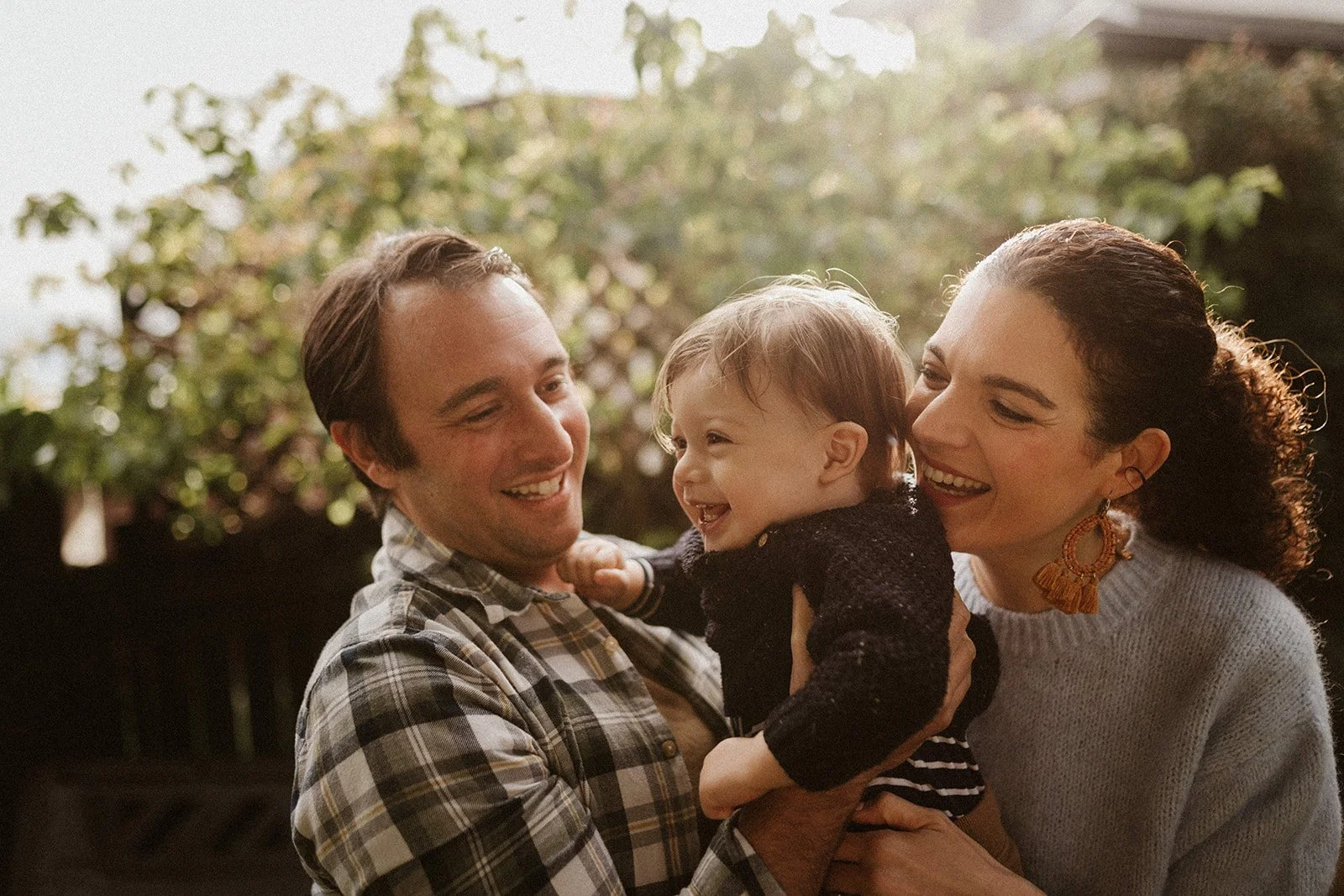How to Introduce Your Pets to Your Baby
/By: Katrina Lubiano
I think most pet owners (myself included) consider their cats and dogs their fur-babies. You fall into this category if your pets are spoiled with attention and can often be seen spammed throughout your social media feed (of which I am also guilty). Increasing your family size with two little feet will undoubtedly be a stressful transition. Making sure your pet is ready for the baby will help with this transition go much smoother.
For happier pets and less stressed out parents, it’s best to begin integrating new routines and training for your pet gradually and as early as possible.
It's going to be challenging for your pets to understand that they'll no longer be the centre of your world. To avoid jealous pets, you can begin making changes around the household during pregnancy. Early preparation will help reduce the anxiety animals can experience when drastic changes happen. Consider how your routine will change when the baby arrives and moderately begin to alter your pet's routine.
1. Setup Your babies Digs As Soon As Possible
Baby gear will introduce new sights and smells to your pet; set up the baby’s digs as soon as possible so your family can adapt to the new space. Remember, dogs and cats are much more sensitive to scents and the energy surrounding them-- keep it a positive one! When you have fashioned the baby's new space, you can begin to establish boundaries by keeping the baby's belongings and room off-limits.
2. Ensure Your Pets Understand basic Obedience
Teaching your pet some basic obedience skills seems like the obvious, but it’s crucial to ensure your pet has the control and behavioural skills to be around the baby. Being confident that your pet will not bring any harm to your baby, will reduce your anxiety for when your baby comes home. Your pet needs to know that it is not okay for them to jump into the crib, or chew on the baby’s new things.
3. Consider Crate Training your Dog
The ASPCA suggests that you crate train your dog: “If you crate train your dog, you’ll know that she’s safe when you can’t supervise her, and she’ll have a cozy place of her own to relax when things get hectic.” Command your dog with the word “crate” or “bed” (hand signals may be helpful) and show your dog to their crate. Once in the crate, reward your dog with a treat and praise them. When beginning the training, leave your dog in the crate for 10-15 minutes, and as training progress, and they begin to feel comfortable with their space, you can leave them alone for longer periods.
3. Prep Your Pet For Your Babies Touch
It’s also recommended that you prepare your pet for the baby’s touch and movements. When your child is old enough, teach them to handle the household pet gently. In the meantime, you can help your furry friend anticipate the clumsy touch of a young child by introducing your pet to these sensations yourself. Infants will pinch, poke, pull, and push your furry friend-- it’s an inevitability. Teaching your pet to tolerate these new sensations with a reward, will help your pet tolerate it when your pet and infant begin to play together.
You can also invite your friends’ infants over to introduce your pets to children. It also would be great if your little helpers are experienced around animals, so they’ll know how to be gentle. It's all about imprinting the positive experiences for your pet, and rewarding good behaviour and immediately rooting out the bad.
4. Tire-Out Your pup Before The First Encounter
Upon the first encounter between dog and baby, if possible, ask a friend or family member to take your dog out for a long walk to exercise off some energy and have the baby in the house for when your dog returns home. Animals are very perceptive to the emotions and energy of their owners so be mindful of your body language and feelings. If you’re jumpy around your dog in anticipation of your dog harming your baby, your dog may feel your anxiety. The ASPCA suggests, “[You] choose a quiet room, and sit down with the baby in your arms. Have a helper leash your dog and bring her into the room. Again, avoid any nervous or agitated behaviour. Talk to your dog in a calm, happy voice as you invite her to approach. Convince her that meeting and interacting with her new friend is fun, not stressful.”
5. "Claim Your Babies Scent"
Caesar Milan encourages parents to “claim” their baby's scent. The practice maintains your alpha status to the dog and establishes boundaries. Milan recommends you do this before you introduce your baby to meet your pet. The idea is that you are giving your dog permission to sniff an item with the baby’s scent to demonstrate that its importance to you: “this [scent] belongs to me, you will need to follow my rules when around it." This helps start the process of creating respect for the baby.”
6. Give Your Pets Enough Attention
The new baby will take up a lot of your attention, but try your best to not cut out on the quality time with your fur babies. You may be tempted to catch up on the cuddles with your pets while your baby is asleep or away, but try to avoid exclusively giving your pet attention during these times. Your pets may begin to recognize the pattern of their cuddle sessions with you and that of the baby’s presence and develop jealousy. Give your pet a lot of attention while the baby is around by talking to your pet or tossing them a toy. You can keep rewarding your pet’s good behaviour as well as positively affecting your pet’s experience with the baby. Interacting with your pet around the baby will help teach your pet to love the new baby.
7. Don't Leave Them Alone
I think this next piece of advice is common sense, but please don't leave your babies alone with your pet! Life will no doubt, be chaotic upon the arrival of your baby, but remember to give to give your fur-babies some love too!
















